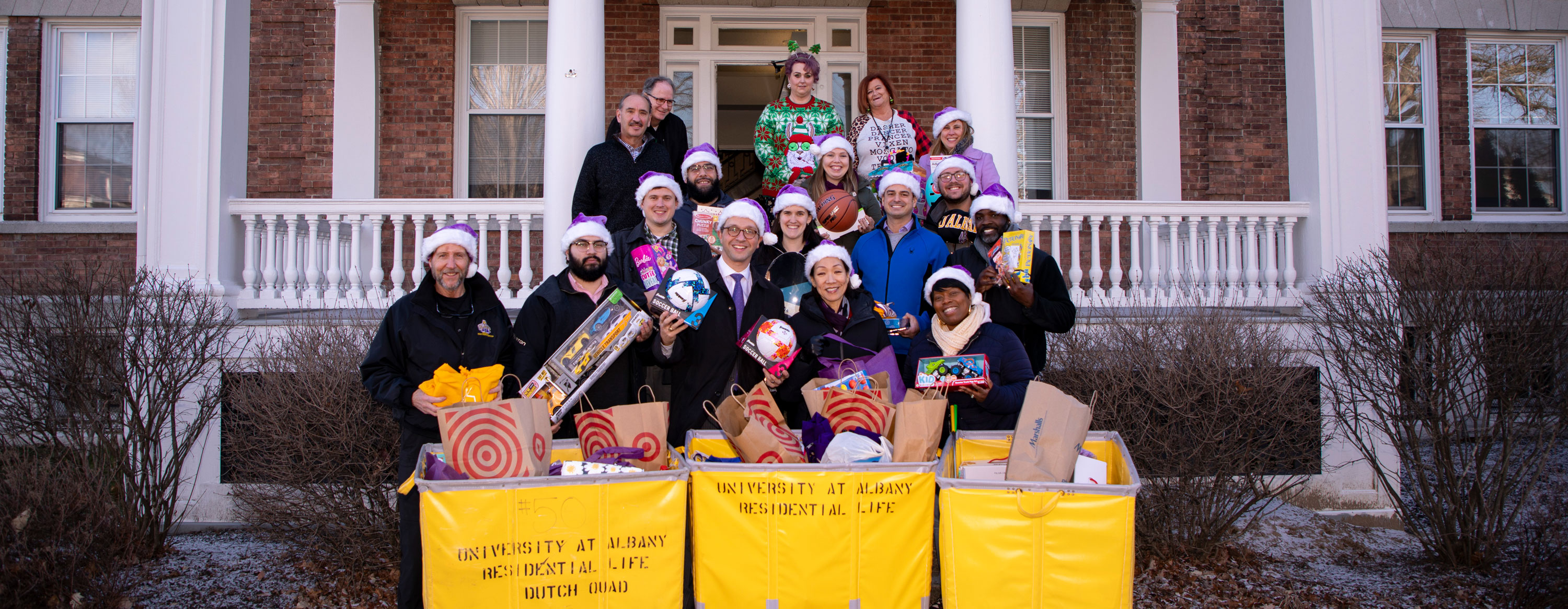How Faculty Can Make an Impact
The University at Albany values the many ways our faculty members make a positive and powerful impact through innovative research and teaching, productive alliances with business, government and nonprofits, creative activities and public service.
Your publicly engaged work supports the University’s Strategic Plan, upholds the University's core priorities of engagement and service, and demonstrates the critical role a public research university plays as an anchor institution for its communities.
UAlbany’s publicly engaged work enriches our scholarship, enhances our curriculum and prepares our students to be well-rounded citizens. It also strengthens democratic values, addresses critical societal issues and improves our communities, both locally and globally.
Download UAlbany's Engaged Scholars Toolkit.
Learn more about public engagement and how you can become more publicly engaged by reviewing the information below. You can also review a list of public engagement definitions, watch videos highlighting engaged scholars at UAlbany, and/or contact us with any questions.

Publicly Engaged Research
Publicly engaged scholarship is collaborative research in which partners create, refine, conserve and exchange mutually beneficial and socially relevant knowledge. It can involve community-focused research, participatory research, or community-based participatory research.
Researchers have partnered with businesses, community organizations, government agencies, academics from other institutions, elected officials and nonprofits.
Publicly engaged scholarship can also take the form of a creative activity, in which partners create, share and apply knowledge through artistic expression for the benefit of an external audience.
Get started by reviewing these Research Funding Opportunities and Entrepreneurship & Innovation Resources.

Publicly Engaged Teaching
Publicly engaged courses offer students educational experiences where they can work with or for external partners in mutually beneficial collaborations. These credit-bearing activities deepen students’ knowledge, skills and civic awareness, while addressing our communities’ needs.
Experiential learning can be embedded into your existing courses, allowing students to apply what they learn in the classroom to real-world situations and problems. It can take the form of creative works, client and community projects, field trips, site visits or capstone courses.
Get started with these resources from the Minerva Center for High-Impact Practices:
Service learning combines community service and academic study. These projects are embedded in UAlbany courses offered across all majors.
Project-based learning connects faculty with external partners and empowers students to apply course concepts in industry aligned projects. Faculty from any department can integrate a project into their course.
Problem-based learning empowers students to conduct research, integrate theory and practice, and apply knowledge and skills to develop a viable solution to a defined problem.

Publicly Engaged Service
Publicly engaged service allows UAlbany faculty to partner with external groups and offer their professional expertise on issues of public importance. It can take the form of clinical services, technical assistance, expert testimony, or community program leadership.
Please contact us for support with publicly engaged service.

Campus Compact Membership
Enhance your knowledge and competency in higher education civic and community engagement with Campus Compact.
UAlbany is a member of Campus Compact, which is a national coalition of colleges and universities committed to advancing the public purposes of higher education.
Campus Compact takes a comprehensive approach to supporting member institutions — helping them build the knowledge, skills, and capacity needed to enable a just, equitable, and sustainable future.
UAlbany students, faculty and staff are welcome to access to the Campus Compact resource library.


